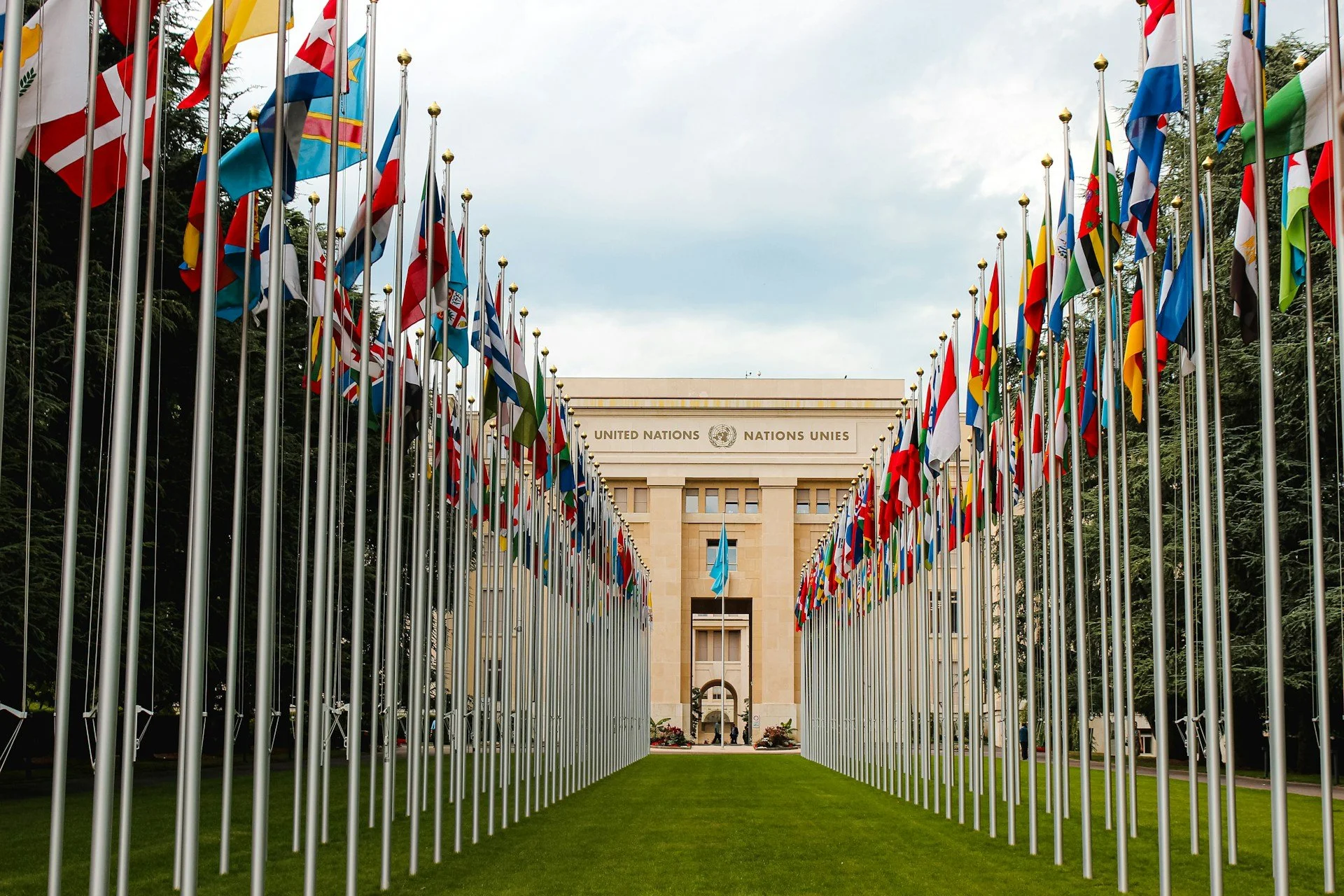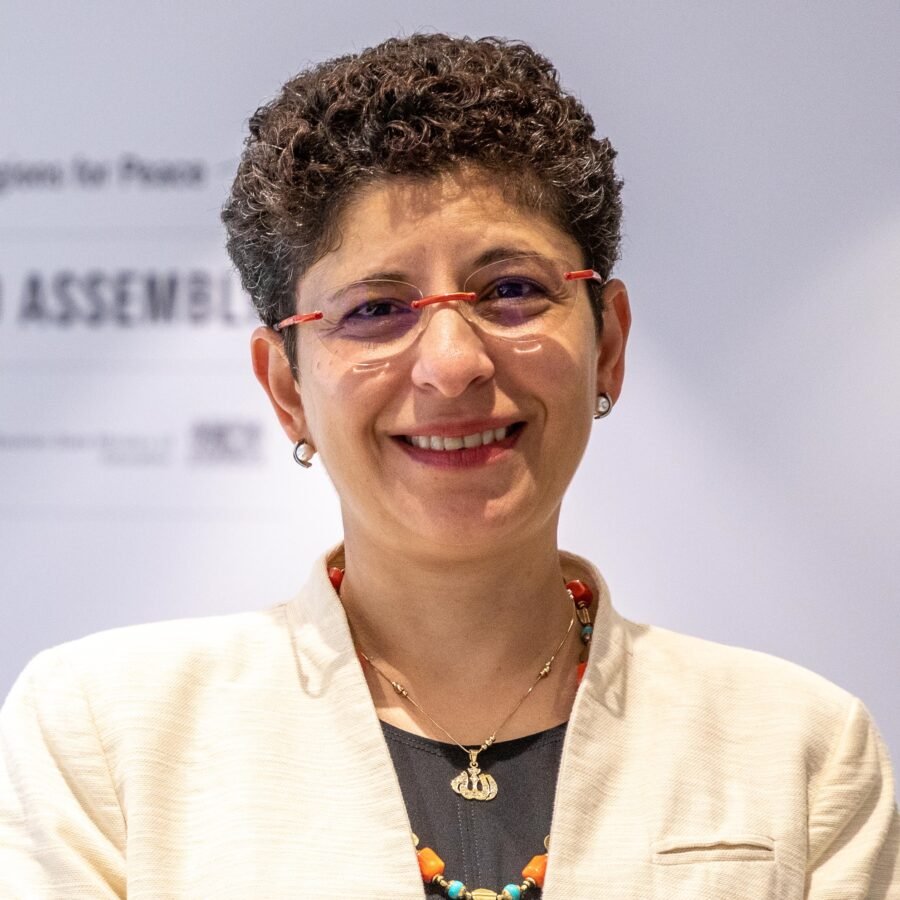FAITH-BASED ORGANIZATIONS INVITED TO THE UN TABLE
Sustainable Development Goals Engendering New Partnerships
by Azza Karam
In 2007, an Op Ed appeared in the International Herald Tribune, entitled “You gotta have faith at the UN.” A play on words, the article posited that the shifting sands of geopolitics and concerns surrounding available developmental resources, were demanding a rethink of multilateral institutions and traditional forms of global developmental partnerships. The article argued that religion, and diverse faith-based actors in particular, had to be reckoned with more seriously by policy makers at the United Nations – particularly given the timeliness of the ‘mid-term’ Millennium Development Goals (MDG) review processes. The article noted that unless religion was systematically and consistently factored into developmental outreach, policy design, program implementation, and monitoring efforts, something would continue to be missing in the equation of sustainable human development processes.
In line with the gist of the article, a United Nations Inter-Agency Task Force on Engaging with Faith-Based Organizations for Sustainable Development was officially formed under the aegis of the United Nations Development Group in 2009, bringing together several UN entities (UNFPA, UNICEF, UNDP, WHO, UNAIDS, as well as UN Alliance of Civilizations, DESA, UNESCO, UNHabitat and UNEP) with the World Bank as an observer, in New York. The mandate of this body, dubbed the “UN Task Force on Religion and Development” for short: to seek to share knowledge and build UN staff and systems’ capacities on dealing with faith-based entities, and questions of religion, around the MDGs.
By 2010, the UN System Staff College, in collaboration with members of the Task Force, provided the first Strategic Learning Exchange on Religion and Development, including faith-based partners. By 2011, several policy roundtables, workshops, and seminars were being convened with academic experts from across the U.S., Europe, Africa, Asia and the Arab region, to assess “how” some of the UN agencies were working with FBOs (faith-based organizations).
In 2014, while the third iteration of the Strategic Learning Exchange was taking place, WHO, UNAIDS, UNFPA, UNHCR, UNDP and WFP, were among the many UN bodies detailing their multiple experiences of partnerships with FBOs (faith-based organizations) around diverse issues from containing the Ebola virus, strengthening health service delivery around maternal, neonatal and child health, to combating gender-based violence, securing nutrition, dealing with IDPs and refugees in humanitarian disaster zones, and countering disparate forms of politically motivated religious extremism in countries as diverse as the UK and Syria.
In February 2015, World Bank President Jim Kim convened a roundtable with CEOs of major international development and humanitarian FBOs, and religious leaders. In it, he stated that [the World Bank] cannot effectively seek to eradicate poverty without partnering with FBOs and religious leaders. “We are open for business” he said, indicating that these very actors can hold the World Bank accountable, henceforth, for more systematic engagement.
The meeting between the WB president and FBOs signaled a tipping point in international development, underlined at a July 8 and 9 meeting where the World Bank, together with co-sponsors including international FBOs and aid agencies, convened a global conference on “Religion and Sustainable Development.” The conference focused on eradicating extreme poverty – one of the World Bank’s key objectives and the number one Sustainable Development Goal. The objectives of the meeting included looking at the evidence of faith-based engagement in poverty eradication, specifically in health, humanitarian relief, and violence against women.
Creating a Global Faith-based Movement for Sustainable Development
UN Secretary General Ban Ki Moon has been a consistent supporter of stronger partnerships between the religious community and UN agencies to ensure sustainable development. – Photo: un.org
Building a ‘global faith-based movement for sustainable development’ was mentioned as one of the outcomes of the World Bank gathering. Immediately following the July 10 -11 meeting, the UN Task Force convened a trilateral (Donors, UN agencies and Faith-Based development organizations) roundtable, also known as the DUF platform. The first DUF gathering took place in May of 2014, focusing on three specific SDG areas: governance, peaceful and inclusive societies, and gender equality.
The gathered participants were able to speak candidly to what each organization and policy maker in each of these ‘sectors’ faces when religion comes into the mix. Needless to say, these three developmental goals are where the challenge of religious dogma, harmful practices, and incitement to extremes of violence – to name but a few – are very much at play.
Part of the claim to success of some FBOs is their age-old capacity to provide social services directed to inequalities among hardest to reach. At the same time, however, certain UN entities – especially concerned with human rights, particularly women’s rights – bespeaks serious challenges with certain religious leaders and faith entities. The DUF II meetings of July 2015 emerged with several concrete outcome areas of collaboration which require the inputs of all three sectors, and which are in line with the shared objectives among them.
The fact is, there is no blueprint for multilateral engagement with religious actors, especially as we live in times in which we confront some of the most paralyzing human political, cultural, and economic strife at the hands of other ‘religious actors.’
A recent meeting involving European governmental donors and USAID in Germany last month looked more in depth at the manner in which they have been engaging with religious actors around a range of developmental issues. The discussions among the long-time practitioners and policymakers gathered in Frankfurt resulted in a clear endorsement for coordination among international development actors and faith-based partners. A tentative agreement slowly emerged to secure an international coordinating mechanism to convene the developmental donors, together with multilateral actors (such as the United Nations and the World Bank), as well as faith-based development counterparts. If realized, this mechanism would build on the legacy established by the UN Inter-Agency Task Force of convening itself and its partners since 2001 and creating the DUF platform. But this mechanism would go some steps further to seek to effectively institutionalize and resource this coordination, with a view to realizing the SDGs at the country level, in sync with some regional and global efforts.
The frenzy of activities attending the visit of Pope Francis to the United Nations, including a historic convening under the joint auspices of the UN, the World Bank, and a number of multi-religious development organizations, was a great testament to how far the awareness of the role of religion has come in the staidly secular establishments of international power.
These platforms for engagement, and the discussions and even emerging consensus taking place around coordination and shared visions, would not have been possible under the auspices of these major global institutions just a few years ago. What is taking place now is a testament to visionary leadership and the hard work and commitment inside and outside these institutions. It is, in my opinion, the result of an ‘audacity to dream,’ as Rev. Martin Luther King once reminded us.
The pitfalls of operating out of fear are clear, and none are affordable. We cannot instrumentalize religious actors or lump them all into one set of clearly defined categories. Nor can we afford to have this phase of engagement be a fashion that passes until the next big thing comes onto the international screen because these organizations, leaders, and communities are the “whole of humanity.” At the same time, it behooves us to remember that, as international actors, the “whole of human rights” has to remain our focus. So any attempt to prioritize one set of rights over another to make easy friends in the realms of religion, will, as history keeps telling us, not constitute anything except a recipe for more long-term disasters.
An earlier version of this story was published October 7, 2015, by Inter Press Service.
Header Photo: Unsplash




